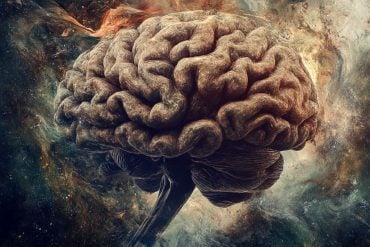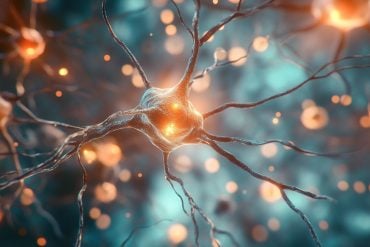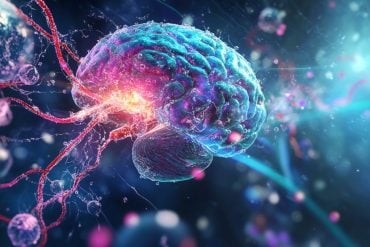Summary: Researchers report practicing Tai Chi can help to alleviate some of the symptoms of PTSD for veterans.
Source: Boston University Medical Center.
Veterans with symptoms of posttraumatic stress disorder (PTSD) who participated in in Tai Chi not only would recommend it to a friend, but also found the ancient Chinese tradition helped with their symptoms including managing intrusive thoughts, difficulties with concentration and physiological arousal.
The findings, which appear in the journal BMJ Open, are the first to examine feasibility, qualitative feedback and satisfaction associated with Tai Chi for this population.
In the general population, the lifetime risk of developing PTSD is estimated to be 8.7 percent. Among Veterans seeking VA services the risk is higher, with an estimate of 23.1 percent. PTSD and its symptoms often become chronic and are associated with a loss of physical, financial and psychological well-being.
Tai Chi is practiced today as a graceful form of exercise that involves a series of movements performed in a slow, focused manner accompanied by deep breathing and mindfulness. In addition to physical improvements in flexibility, strength and pain management, there is evidence that Tai Chi improves sleep and reduces depression and anger.
Seventeen Veterans with posttraumatic stress symptoms enrolled in a four-session introduction toTai Chi program. After the final session, participants reported favorable impressions of the program. Nearly 94 percent were very or mostly satisfied and all participants indicated that they would like to participate in future Tai Chi programs and would recommend it to a friend. In addition, they described feeling very engaged during the sessions and found Tai Chi to be helpful for managing distressing PTSD symptoms.

According to the researchers this study provides evidence for the feasibility of enrolling and engaging Veterans with symptoms of PTSD in a Tai Chi exercise program. “Our findings also indicate that Tai Chi is a safe physical activity and appropriate for individuals with varying physical capabilities. Given our positive findings, additional research is needed to empirically evaluate Tai Chi as a treatment for symptoms of PTSD,” said Barbara Niles, PhD, assistant professor of psychiatry at Boston University School of Medicine and staff research psychologist at the National Center for PTSD – Behavioral Science Division, VA Boston Healthcare System.
Funding: This study was supported by the National Center for Complementary and Integrative Health (NCCIH; R01AT006367-01A1 and K24AT007323) and funds from the National Center for PTSD.
Source: Gina DiGravio – Boston University Medical Center
Image Source: NeuroscienceNews.com image is in the public domain.
Original Research: Full open access research for “Feasibility, qualitative findings and satisfaction of a brief Tai Chi mind–body programme for veterans with post-traumatic stress symptoms” by Barbara L Niles, DeAnna L Mori, Craig P Polizzi, Anica Pless Kaiser, Annie M Ledoux, and Chenchen Wang in BMJ Open. Published online November 29 2016 doi:10.1136/bmjopen-2016-012464
[cbtabs][cbtab title=”MLA”]Boston University Medical Center “Tai Chi Helps Manage Intrusive Thoughts in Veterans With PTSD.” NeuroscienceNews. NeuroscienceNews, 30 November 2016.
<https://neurosciencenews.com/tai-chi-ptsd-veterans-5638/>.[/cbtab][cbtab title=”APA”]Boston University Medical Center (2016, November 30). Tai Chi Helps Manage Intrusive Thoughts in Veterans With PTSD. NeuroscienceNew. Retrieved November 30, 2016 from https://neurosciencenews.com/tai-chi-ptsd-veterans-5638/[/cbtab][cbtab title=”Chicago”]Boston University Medical Center “Tai Chi Helps Manage Intrusive Thoughts in Veterans With PTSD.” https://neurosciencenews.com/tai-chi-ptsd-veterans-5638/ (accessed November 30, 2016).[/cbtab][/cbtabs]
Abstract
Feasibility, qualitative findings and satisfaction of a brief Tai Chi mind–body programme for veterans with post-traumatic stress symptoms
Objective To examine feasibility, qualitative feedback and satisfaction associated with a 4-session introduction to Tai Chi for veterans with post-traumatic stress symptoms.
Design We observed and reported recruitment and retention rates, participant characteristics, adherence, and satisfaction across 2 cohorts. We also examined qualitative feedback provided by questionnaires, focus groups and individual interviews.
Main outcome measures Rates of recruitment and retention, focus group and individual feedback interviews, self-reported satisfaction.
Participants 17 veterans with post-traumatic stress symptoms.
Results Almost 90% (17/19) of those eligible following the telephone screen enrolled in the programme. Three-quarters (76.4%) of the participants attended at least 3 of the 4 Tai Chi sessions. Qualitative data analysis revealed themes indicating favourable impressions of the Tai Chi sessions. In addition, participants reported feeling very engaged during the sessions, and found Tai Chi to be helpful for managing distressing symptoms (ie, intrusive thoughts, concentration difficulties, physiological arousal). Participants also reported high satisfaction: 93.8% endorsed being very or mostly satisfied with the programme. All participants (100%) indicated that they would like to participate in future Tai Chi programmes and would recommend it to a friend.
Conclusions Tai Chi appears to be feasible and safe for veterans with symptoms of post-traumatic stress disorder (PTSD), is perceived to be beneficial and is associated with high rates of satisfaction. This study highlights the need for future investigation of Tai Chi as a novel intervention to address symptoms of PTSD.
“Feasibility, qualitative findings and satisfaction of a brief Tai Chi mind–body programme for veterans with post-traumatic stress symptoms” by Barbara L Niles, DeAnna L Mori, Craig P Polizzi, Anica Pless Kaiser, Annie M Ledoux, and Chenchen Wang in BMJ Open. Published online November 29 2016 doi:10.1136/bmjopen-2016-012464






